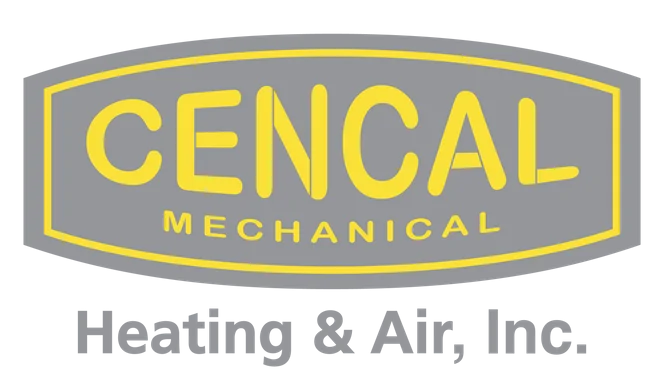AC units have become an essential component of keeping our home comfortable, but make sure it does not become a culprit of compromised air quality for your family.
In this guide, our team at Cencal Mechanical covers some of the most common questions surrounding the indoor air quality of our homes and how it can be affected by your air conditioner.
Table of Contents
- How Do Air Conditioners Impact Indoor Air Quality?
- What Are The Common Pollutants and Allergens That Can Be Found in Air Conditioning Systems?
- How Can You Tell if Your Air Conditioner is Affecting Your Indoor Air Quality?
- What Are the Health Effects of Poor Indoor Air Quality Caused By Air Conditioners?
- How Can You Improve the Indoor Air Quality in Your Home Through Air Conditioning Maintenance?
- How Can I Choose an Air Conditioner That Promotes Good Indoor Air Quality?
- How Do You Address Mold and Mildew Problems in Your Air Conditioner?
How Do Air Conditioners Impact Air Quality?
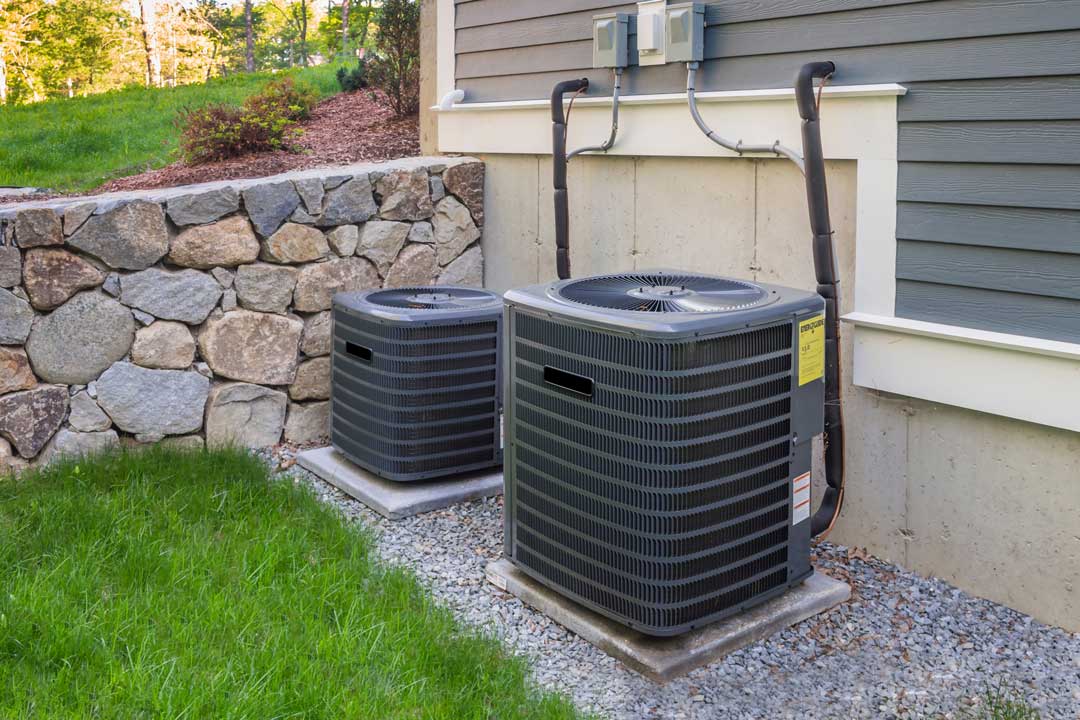
Positive Impacts
- Filtration System: Many modern air conditioning systems are equipped with air filters that are designed to capture dust, pollen, mold spores, and other types of debris. This helps to enhance air quality by removing airborne pollutants and allergens from inside the home.
- Humidity Control: Air conditioners often have dehumidifying functions that help control indoor humidity levels. This will help to inhibit the growth of mold and mildew.
- Ventilation: Air conditioners have the ability to circulate and filter air throughout the entire indoor space. This consistency helps to prevent stagnant air which minimizes the concentration of allergens or pollutants.
Negative Impacts
- Condensation & Mold Growth: In some conditions, air conditioners can contribute to moisture buildup (if not properly maintained). Excessive condensation in air ducts or cooling coils creates an environment conducive to mold growth which has the potential for mold spores to be released into the air.
- Airborne Chemicals: Some AC units, particularly older models, may emit low levels of VOCS (volatile organic compounds). This depends on the type of refrigerant that is used.
- Inadequate maintenance: Poorly maintained ACs units can circulate pollutants or allergens throughout an entire home. Without regular tune-ups, air conditioners can compromise air quality.
What Are The Common Pollutants and Allergens That Can Be Found in Air Conditioning Systems?
Air conditioning systems can hold on to various pollutants and allergens that can greatly affect the indoor air quality of a home including:
- Dust: Dust particles can accumulate in air filters, ducts, and coils, leading to reduced system efficiency and the potential release of airborne particles into indoor spaces.
- Mold & Mildew: The potential for mold and mildew build-up is a possibility when condensation sits within those AC systems. Mold spores can be released into the air and cause respiratory health risks.
- Bacteria & Viruses: Moist areas are also a site for bacteria and viruses to thrive. Microorganisms may be found inside drip trays or cooling coils which can contribute to bacteria and viruses being circulated in the air.
- Pollen: Outdoor air filled with pollen can infiltrate an AC unit. Once inside, pollen can collect in filters and ducts which can trigger allergic individuals.
- Pet Dander: Airborne particles of skin, hair, and saliva, from our pets can also be circulated through the air, especially if homeowners are not changing air filters regularly.
- VOCs: As mentioned before, VOCs can be emitted by some cooling systems depending on their use of coolant. Prolonged exposure to these can become a health risk.
- Tobacco Smoke Residue: Residue from tobacco smoke can also accumulate inside an air conditioner and pose a risk to non-smokers. Regular cleaning and maintenance is essential to reduce the presence of these particles.
- Pesticides & Chemicals: Chemicals found in household cleaning products or pesticides can also be drawn into AC units. Their accumulation can impact the air quality inside the home.
How Can You Tell if Your Air Conditioner is Affecting Your Indoor Air Quality?
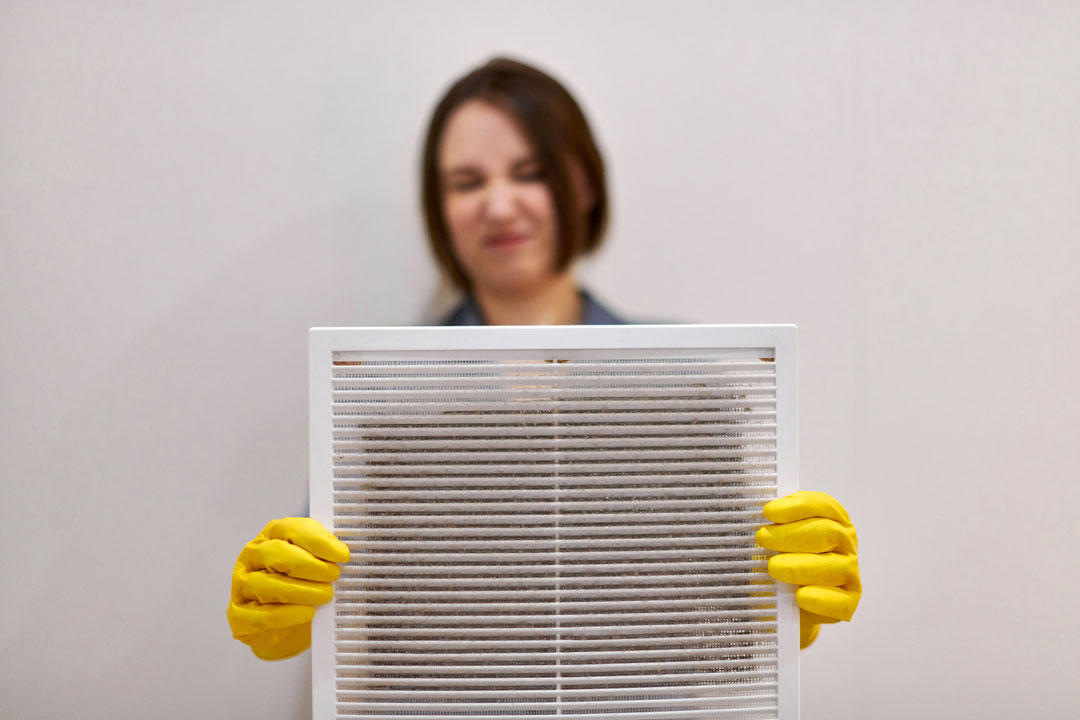
Noticing the impact your air conditioner has on your indoor air quality involves paying attention to various signs and symptoms.
Key indicators include:
- Unpleasant Odors: Foul or musty smells coming from the air vents may indicate the presence of mold or mildew.
- Increased Respiratory Issues: If occupants of the home start experiencing an increased, prolonged, or uptick in respiratory issues such as coughing, sneezing, wheezing, or worsened overall allergies, it could be a sign that airborne allergens are circulating the home.
- Visible Mold Growth: Observing mold growth around air vents, on the walls, or near the AC unit, is a clear sign that mold spores are present. This should be addressed promptly.
- Dusty/Dirty Air Vents: Accumulation of dust or dirt in or around your air vents could indicate that the system is not effectively filtering air.
- Inconsistent Cooling or Heating: If your air conditioner is not functioning optimally, it may struggle to regulate temperature and humidity levels. Inefficient cooling or heating can contribute to other conditions outlined above.
- Excessive Humidity: Noticing condensation on windows, dampness on walls, or a generally clammy feeling, suggests that your air conditioner is not effectively controlling humidity.
- Lingering Stale Air: A persistent feeling of stale or stuffy air may indicate inadequate ventilation of the indoor space.
- Increased Dust on Surfaces: If you notice an increase in dust on the surface of items around the home, it could be another sign that your system is not effectively filtering airborne particles.
If you observe any of these signs, it may be time to contact our team to inspect your AC unit and possibly provide a tune-up to keep your system running at top-tier efficiency.
What Are the Health Effects of Poor Indoor Air Quality Caused By Air Conditioners?
Poor indoor air quality has a range of potentially adverse health effects and varies depending on the nature of the pollutants paired with the sensitivities of particular individuals. For example, those allergic to pet dander or pollen will feel the impact of poor filtration and ventilation at a higher rate than those without those allergies.
Here are some common health effects associated with poor indoor air quality:
- Eye, Nose, Throat, & Skin Irritation: Watery eyes, runny noses, scratchy throats, and dry or irritated skin.
- Respiratory Irritation & Infection: Symptoms such as coughing, sneezing, wheezing, and even full-blown infections caused by bacteria or viruses circulating.
- Increased Asthma Symptoms: Shortness of breath, coughing, wheezing, and tightness in the chest.
- Aggravation of Allergies: Individuals with allergens may experience enhanced symptoms when inside, particularly those allergic to dust, pollen, mold, or mildew.
- Headaches & Fatigue: Headaches, dizziness, and fatigue can be present, especially when exposed to VOCs.
- Mental-Health Impact: Cognitive impairments, contributions to stress, anxiety, and decline in overall well-being.
- Long-Term Risks: Prolonged exposure to poor indoor air quality can contribute to chronic, long-term health issues such as cardiovascular problems and respiratory diseases.
- Exacerbation of Existing Conditions: Individuals with present conditions such as COPD (chronic obstructive pulmonary disease) or cardiovascular issues may experience worsened symptoms.
How Can You Improve the Indoor Air Quality in Your Home Through Air Conditioning Maintenance?
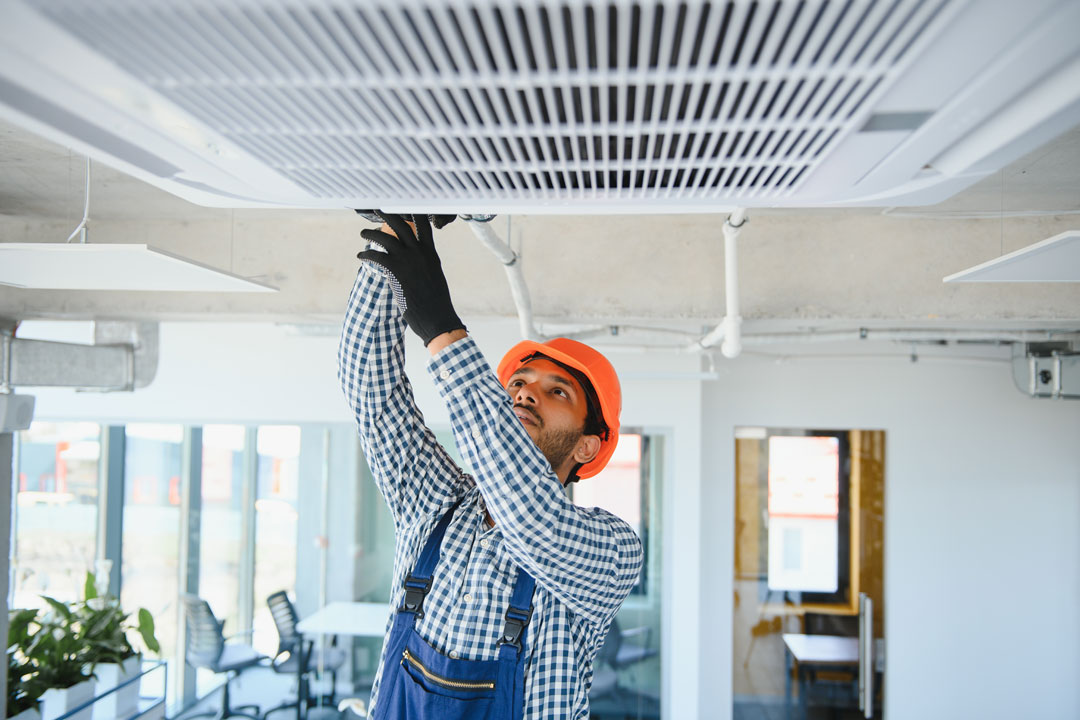
Improving indoor air quality through air conditioning maintenance involves several key steps.
Here are some effective best practices to enhance the performance of your air conditioning system and ensure better indoor air quality:
- Regular Filter Maintenance: Change or clean air filters regularly. Clogged or dirty filters hinder airflow, allowing pollutants to circulate. Change out your air filters every 90 days (at minimum).
- Use High-Quality Air Filters: Invest in high-efficiency particulate air (HEPA) filters. These can capture smaller particles, including allergens and pollutants, improving the overall air quality.
- Professional HVAC Tune-Ups: Schedule regular AC tune-ups with our team. This includes cleaning coils, checking refrigerant levels, and ensuring that all components function optimally.
- Duct Cleaning: Periodically clean air ducts to remove accumulated dust, mold, and other contaminants. This helps prevent the spread of pollutants throughout the home and ensures efficient airflow.
- Control Humidity Levels: Maintain optimal humidity levels (typically between 30-50%) to discourage mold growth. Consider using a dehumidifier if necessary, especially in humid climates or during wet seasons.
- Ventilation Enhancement: Ensure proper ventilation by regularly opening windows and doors to allow fresh outdoor air to circulate. Consider using exhaust fans in areas prone to moisture, such as kitchens and bathrooms.
- Seal Leaks and Insulate: Seal any gaps or leaks in windows and doors to prevent outdoor pollutants from entering. Proper insulation also helps maintain consistent indoor temperatures and reduces the need for excessive air conditioning.
- Regular Cleaning of Surrounding Areas: Keep the area around the outdoor unit clean and free of debris. Trim vegetation to maintain proper airflow.
- Limit Indoor Pollutant Sources: Be mindful of indoor activities that may introduce pollutants, such as smoking or using certain cleaning products. Ventilate the space appropriately when engaging in such activities.
- Install Air Purifiers: Consider using standalone air purifiers with HEPA filters or other advanced filtration technologies to supplement your air conditioning system and further improve air quality.
How Do I Choose an Air Conditioner That Promotes Good Indoor Air Quality?
There are several factors to consider when choosing an air conditioner that will help promote good indoor air quality which involves taking a look at the unit’s design, features, and maintenance requirements.
Key considerations include:
- Filtration System: Go for a system with a high-quality filtration system. Look for units equipped with HERPA filters, for example. These filters effectively capture smaller particles.
- Ventilation Options: Some units offer ventilation options such as a “fresh air” setting that brings in outdoor air helping to dilute indoor pollutants.
- Humidity Control: Look for systems with built-in dehumidification capabilities. This will help prevent mold and mildew from growing.
- Variable Speed Motors: Systems with variable speed motors can adjust the speed of the fan to align with cooling needs. This will not only help energy efficiency but also consistent air circulation.
- Simplified Maintenance Features: Select a model that has accessible and washable air filters that simplify the maintenance process.
- Whole-House Air Purification Systems: For additional air quality improvement, consider going with a whole-house purification system that works alongside the AC unit. They are designed to cleanse the air from a wide array of contaminants.
Before making a purchase, consult with our team at Cencal Mechanical to ensure that the AC unit you choose meets both your needs and wants, especially when it comes to indoor air quality.
How Do You Address Mold and Mildew Problems in Your Air Conditioner?
If you know that you are dealing with mold or mildew problems within your air conditioner, there are several steps to take including:
- Turn Off the AC: Before doing anything, turn off the unit to avoid further circulation of mold spores. Disconnect the power supply as well to avoid any injury during cleaning.
- Safety Precautions: Use appropriate safety gear to do any routine maintenance or cleaning. Grab gloves and a mask to protect yourself from mold exposure.
- Replace Filters: If you have spotted mildew or mold, it’s important to replace the filters and inhibit the chance of recurring issues.
- Clean the Drip Pan: Clean the drip pan found under the evaporator coils. The accumulated water found here can become a breeding ground for mold. Use a mixture of water and mild detergent to clean the pan.
- Clean Evaporator Coils: If you find mold present on the coils, use a soft brush or vacuum to remove debris and mold. Follow this with a solution of water and detergent to finish the cleaning.
- Inspect & Clean the Ducts: If you have mold in the ducts, you’ll want to consider hiring a professional to get this job done correctly. While inspecting, ensure that there is no sign of leaks.
- Improve Ventilation: Enhance the ventilation around the space where the AC unit is located. This will prevent moisture build-up.
- Address Water Leaks: Have any water leaks or condensation issues repaired ASAP.
- Consider UV Light Installation: UV lights will help to kill mold and bacteria, which will help prevent the growth of mold on coils and other components.
- Schedule Professional Maintenance: If mold or mildew persists, or if the problem is extensive, it’s important to contact us so we can properly evaluate and help remediate the situation.
More Improved Indoor Air Quality with Help from Cencal Mechanical

The knowledge above will help keep you on your toes with some of the lesser-known connections between air conditioners and the indoor air quality of a home. We hope this provides a new understanding and direction you need to keep the maintenance of your air conditioner efficient and performing at top levels.
For help installing a new air conditioner that keeps the air in your home enhanced and clean, contact our team and speak to a team member who can provide you with an accurate estimate.
Ah, California! The Golden State. A place of nearly endless summers and mild winters (usually). But this unique climate has its own set of quirks that can impact the heating and cooling systems in your home.
We’ve been offering furnace and air conditioning service in the Central Valley long enough to know the importance of accounting for California’s specific environmental factors. Understanding how these affect your HVAC equipment can help you anticipate and overcome potential problems. Let’s take a closer look.
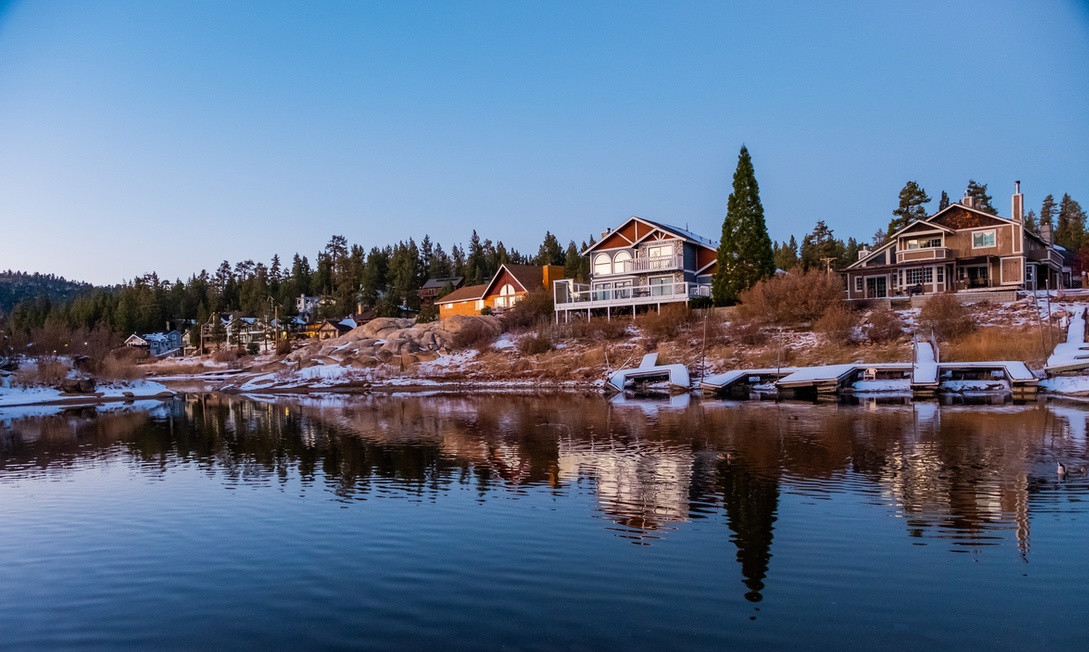
What to Plan For When Heating California Homes
Look Out for Temperature Fluctuations
California’s winters might be mild, but sudden temperature drops can happen. Here’s how it affects your heating:
- Unpredictability: You may find yourself switching from AC to heating within hours.
- Equipment Stress: Sudden demands can put stress on your heating system.
What You Can Do: Regularly check your thermostat and have a professional look at the system before winter kicks in.
Anticipate Humidity Levels
California can get quite humid, especially in the winter. This can affect your heating equipment in several ways:
- Reduced Efficiency: Humidity may cause your heating system to work harder.
- Potential Damage: Increased humidity can lead to rust and other damages.
- What You Can Do: Investing in a dehumidifier can help maintain optimal indoor humidity levels during the winter (although you may also want a whole-home humidifier to add moisture to your air during our dry summer months).
Consider the Coastal Influence
If you live near the coast, salty air can influence your heating in a few different ways as well:
- Corrosion Issues: Salt in the air leads to an increased risk of corrosion in your HVAC system over time.
- Increased Breakdowns: Corrosion on your blower fan or heating elements can force your furnace to work harder than necessary, driving up your utility bills and raising your risk of a costly emergency.
What You Can Do: Schedule regular maintenance for your furnace (including regular duct cleaning). This will help remove salt particles before they have a chance to corrode your system.
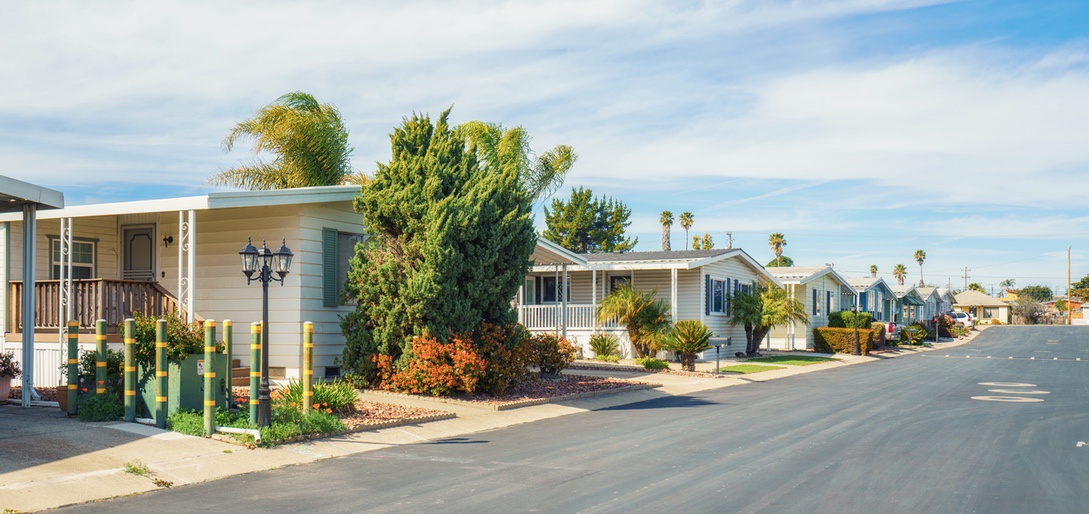
What to Remember When Cooling California Homes
Get Ready for Hot Summer Days
The heat in California can be relentless. Here’s how it affects your cooling:
- Increased Workload: Your AC works overtime during hot spells.
- High Energy Bills: Running your cooling equipment constantly throughout the day leads to higher utility bills.
What You Can Do: Shade your outdoor unit and try to keep the thermostat at a consistent setting.
Keep an Eye On Air Quality
Air quality (especially in urban areas) can influence cooling and impact your home comfort as well. Here’s how:
- Filtering Challenges: More pollutants in the air can clog filters faster than usual.
- Health Concerns: Poor air quality might cause discomfort or make respiratory problems worse.
What You Can Do: Regularly change or upgrade filters and consider an air purifier.
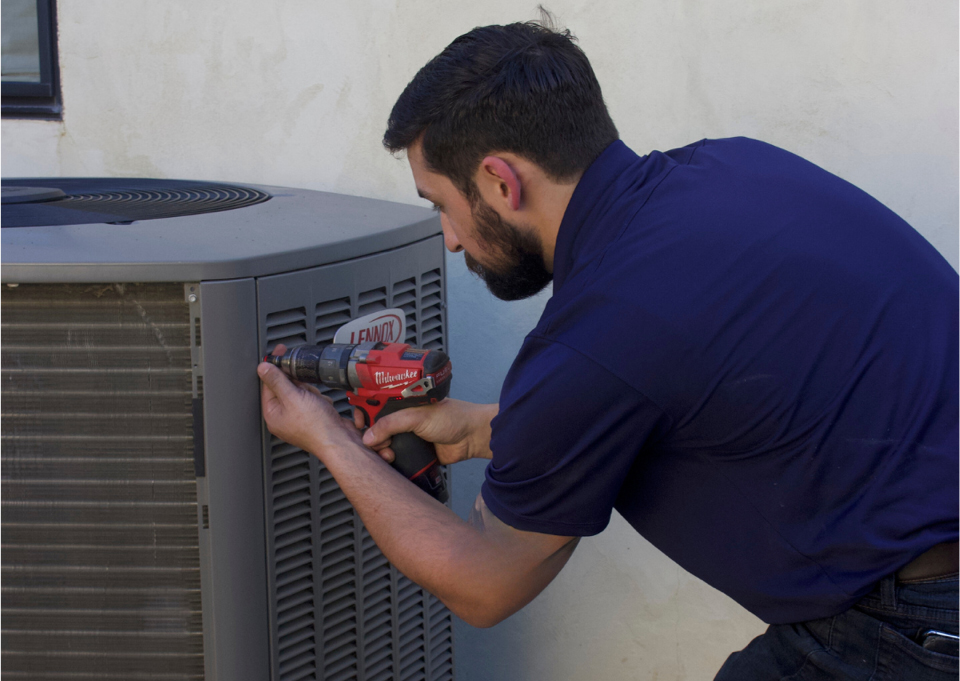
Why Hiring Professional HVAC Technicians Matters
Trust us on this one—hiring professional HVAC technicians is crucial for you to enjoy comfort at home all year round. Here’s why working with our team at Cencal is a smart move:
- Expertise & Skill: With decades of experience serving the Central Valley, we know the ins and outs of California’s climate and how it affects your system.
- Routine Maintenance: Regular checks can catch problems early, saving you money in the long run. Our AC tune-ups start at just $89, and include a comprehensive multi-point inspection of your system to make sure there are no impending issues.
- Safety Assurance: Our total satisfaction promise helps ensure your equipment is functioning safely and efficiently. We never consider our work finished until you’ve approved it.
- Customized Solutions: Our professionals tailor heating and cooling solutions to your specific needs. We don’t just consider the climate—we also consider your home, lifestyle, and comfort preferences to provide solutions that work for you.
California’s weather can be as complex as it is beautiful, but that doesn’t mean your comfort should suffer. Now that you know how the climate impacts your heating and cooling systems, you can take actionable steps to stay cozy and cost-effective.
Contact Cencal Mechanical Heating & Air to make sure your HVAC system is prepared to deal with everything our state can throw at it. Here’s to enjoying your California home, come rain or shine!
Every year, thousands of wildfires burn across California, destroying millions of acres and creating thick smoke that drifts across the state. Peak forest fire season can start as early as June and last well into October, making the air potentially dangerous to breathe for nearly half the year—even when you’re at work or in your home.
By taking steps to improve your home’s indoor air quality, you can reduce the health risks associated with wildfire smoke, which include heart attacks, strokes, and asthma. Below, our team at Cencal Mechanical Heating & Air has compiled a list of recommendations for making the air you breathe in your home or business clearer during the smokiest portions of the year.
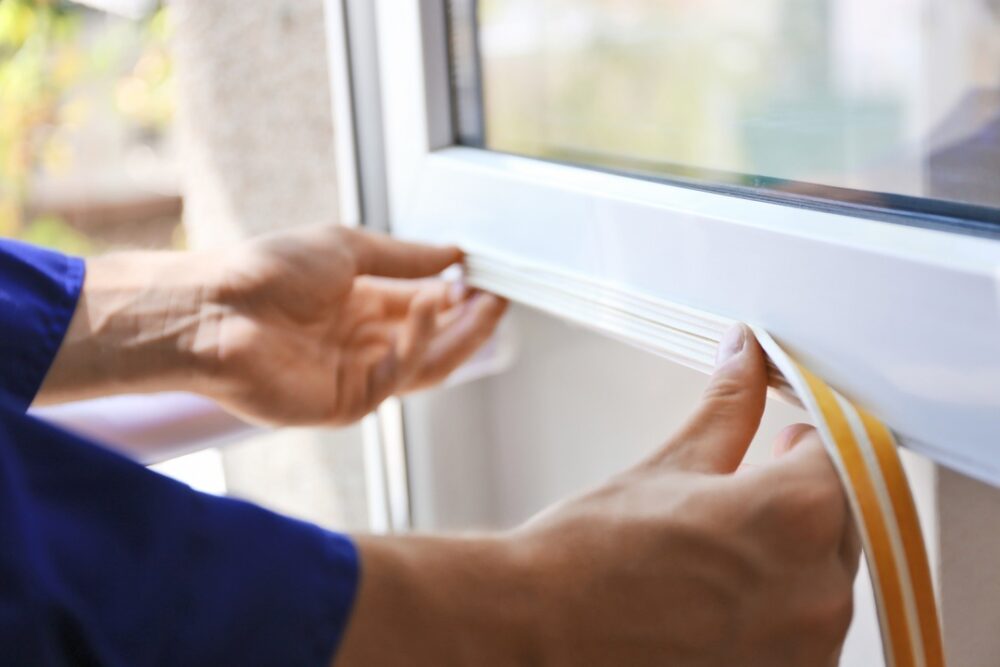
Sealing Your Building
Make sure your home is properly sealed to prevent outside air from entering. This includes:
- Closing all windows and doors
- Sealing gaps in window or door frames with weather stripping
- Placing wet towels at the bottoms of doors to prevent air from coming in underneath
- Monitoring Local Air Quality
You won’t want to keep wet towels under your doors all the time, but knowing when the air quality in your area is most impacted by wildfire smoke gives you an idea of when to take extra precautions. You can learn about your local air quality levels by:
- Checking local air quality reports on airnow.gov
- Monitoring local weather reports on TV or the radio
- Using an app like IQAir or Breezometer
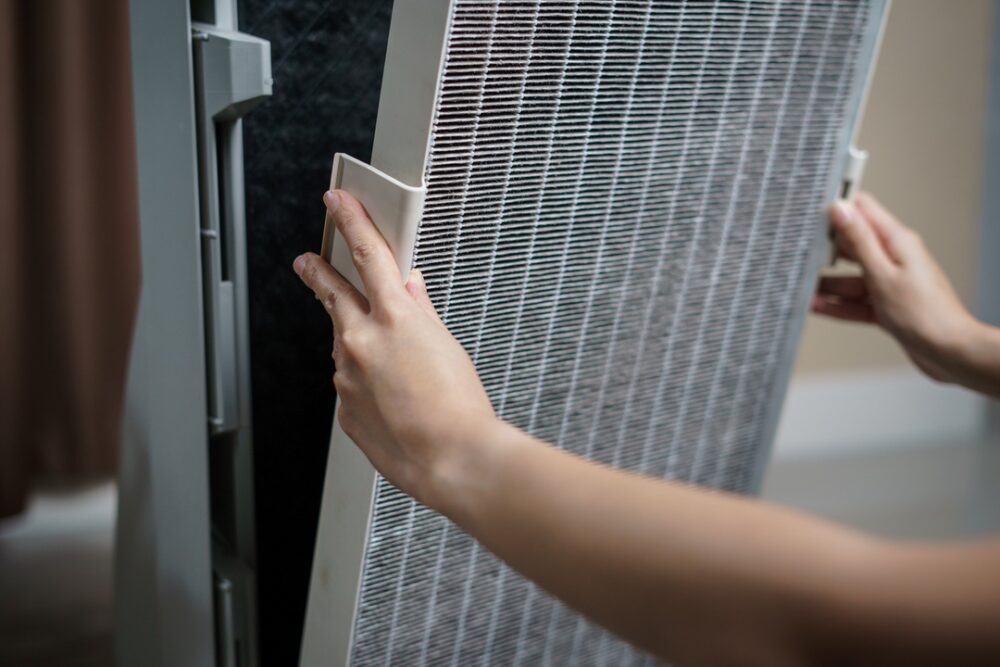
Improving Your HVAC Filters
Your furnace filter is designed to catch contaminants, but standard filters usually aren’t built to capture small particles—making them insufficient to protect you from wildfire smoke. You can upgrade your filter by purchasing a filter with a MERV rating of at least 13.
MERV stands for Minimum Efficiency Reporting Value and is a measurement scale specifically created for air filters by the American Society of Heating, Refrigerating, and Air Conditioning Engineers. You can install MERV 13 filters in most HVAC systems without needing to upgrade your equipment.
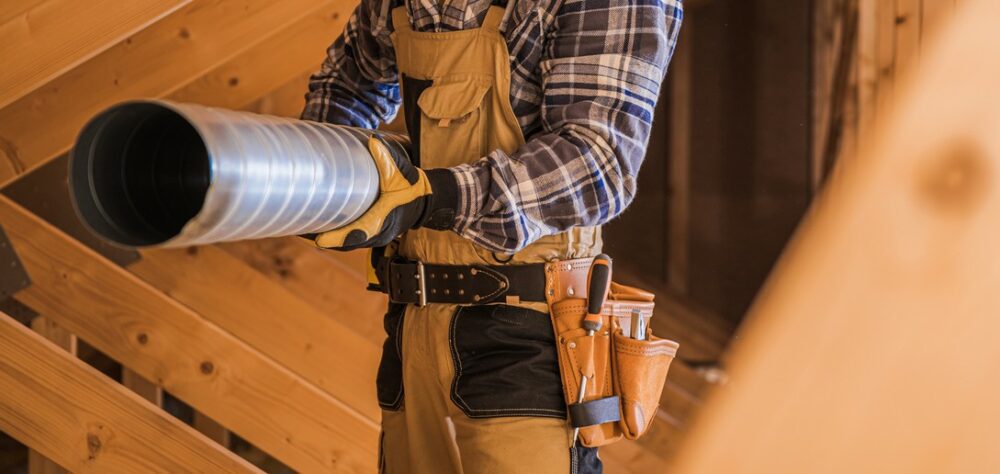
Maintaining Your HVAC System
Since your air filters play a critical role in maintaining your indoor air quality, you’ll need to make sure your HVAC system runs properly throughout forest fire season. Here are some tips:
- Change your furnace filters regularly. Most filters with a MERV rating of 13 or higher should be changed every 30 to 90 days, but it’s best to change them monthly during fire season to be safe.
- Keep the area around your air conditioner’s outdoor unit free from dust and debris, which can quickly accumulate during wildfire season. Sweeping away dust and moving twigs, branches, or other objects at least two feet away helps prevent them from entering your ducts and ensures proper airflow.
- Schedule professional HVAC maintenance to make sure your equipment remains efficient and prevent breakdowns. It’s best to schedule an AC tune-up in the spring before wildfire season starts, and get a furnace tune-up at the end of wildfire season to make sure no damage has been done to your heating equipment before winter starts.
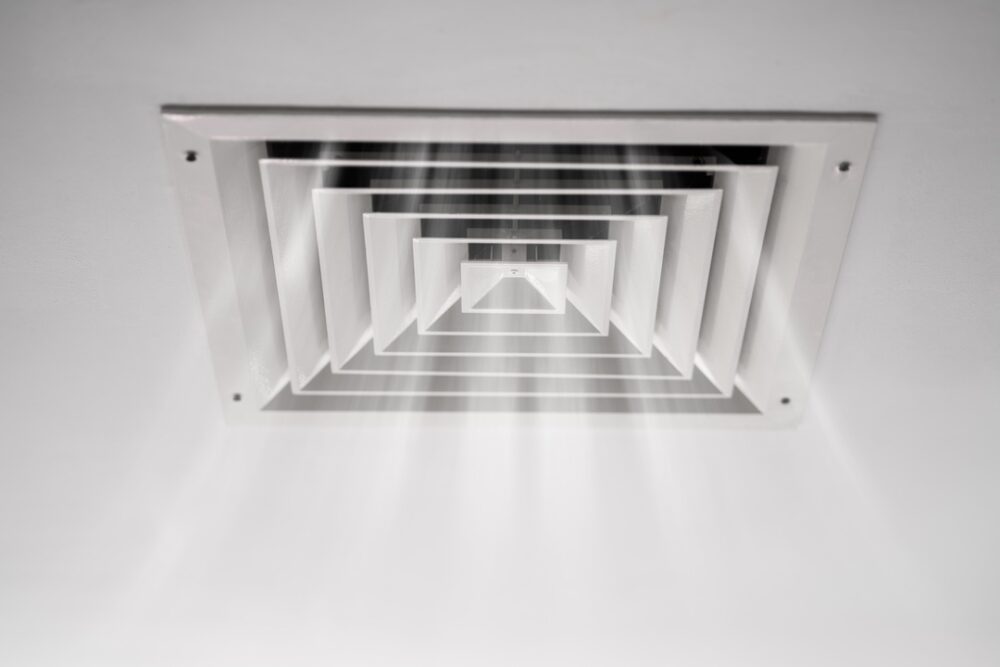
Buying a UV Air Purifier
UV air purifiers won’t catch particulate matter, but they do disrupt the DNA of potentially harmful microorganisms that can live in the air you breathe. The UV-C light these devices emit is harmless to humans, but effectively kills bacteria, mold, and viruses as they pass through your home’s ductwork.
Using a high-quality air filter with a high MERV rating is the best way to trap particulate matter from wildfire smoke and prevent it from entering your home’s air—but adding a UV air purifier to your HVAC system gives you the highest possible air quality at home.
The Health Benefits of Improving Your Indoor Air Quality
Taking the steps above to protect yourself from the harmful effects of wildfire smoke can:
- Reduce your risk of asthma and other respiratory problems
- Reduce your risk of cardiovascular problems like heart attacks and lung cancer
- Improve your sleep quality
- Enhance your overall quality of life by providing peace of mind
For specific suggestions on how to improve the air quality at your home or business during California’s forest fire season, contact Cencal Mechanical Heating & Air. Our experienced professionals will take your home’s features into consideration and provide an effective solution for helping you breathe easier.
Air conditioner problems can make your home uncomfortable during the warmer months of the year, and chances are you’ll want to fix them right away. You might even be tempted to take them into your own hands—but wait! Before you grab a toolkit from the garage and start tinkering with your AC, you should understand the risks that come with DIY jobs. Air conditioners are sensitive electrical systems, and hiring a professional to service yours is always a better idea—not to mention a safer one.
Cencal Mechanical Heating & Air has successfully performed air conditioner repairs across Modesto and the Central Valley, so we know all about the risks that come with this kind of work and we’re happy to explain them to you. Learn all about the pitfalls of DIY air conditioner repair below so you can avoid damaging your air conditioner and get help that will solve your problem instead of making it worse.
See also:
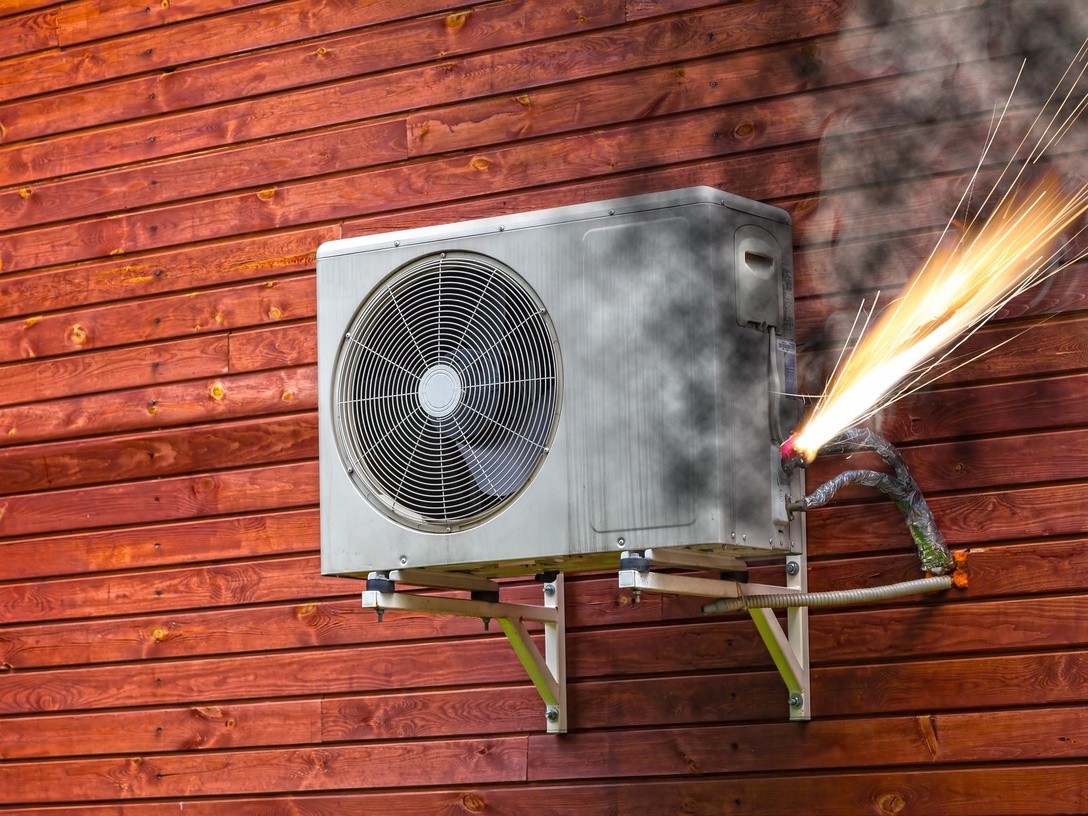
Risk #1: Electrocution
When you handle electrical components, you are potentially exposed to live wires and electrical current, which can be dangerous and even fatal if not handled properly. Without the proper training and knowledge, you may not be able to identify the electrical hazards involved in repairing your air conditioner and may end up putting yourself in harm’s way. To ensure your safety, it’s best to leave air conditioning repairs to the professionals who have the training and equipment to handle the job safely.
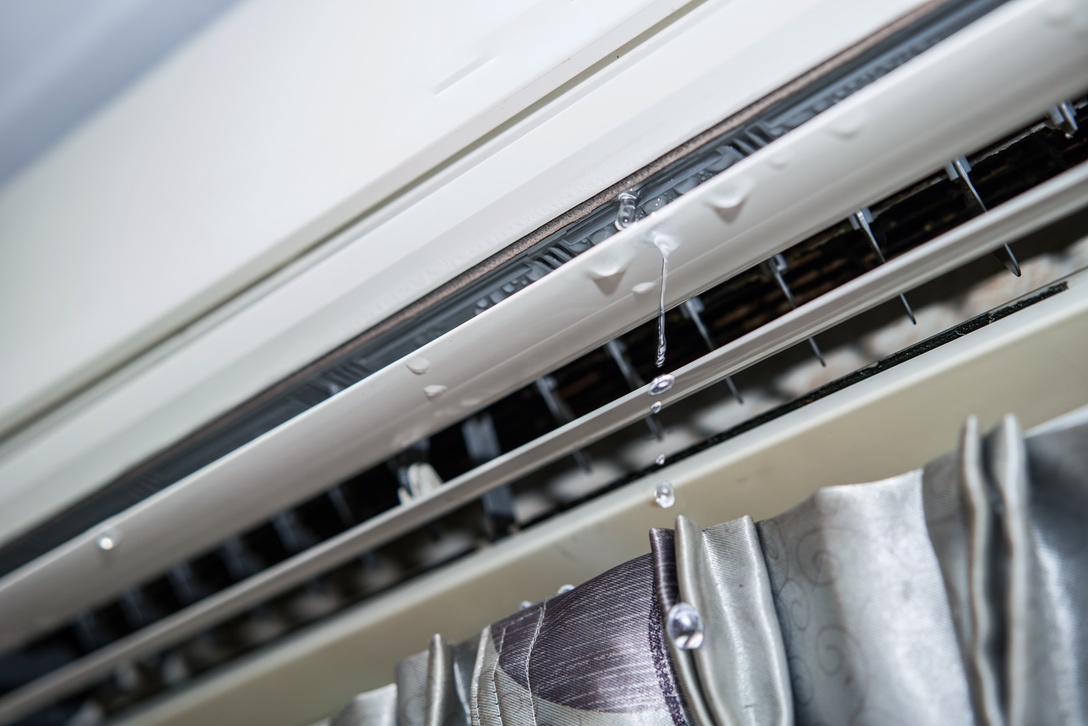
Risk #2: Refrigerant Leaks
Refrigerant is a crucial component of your air conditioner, and handling it improperly can cause it to leak, which can be both harmful to the environment and also reduce the efficiency of your air conditioning system. Furthermore, exposure to refrigerants can pose a risk to your health, as some types can cause respiratory problems if inhaled.
If you’re not trained in how to properly handle refrigerants, it’s best to leave the repair to a professional. Our team has the knowledge and equipment to safely handle refrigerants and make repairs without causing any leaks or health risks.
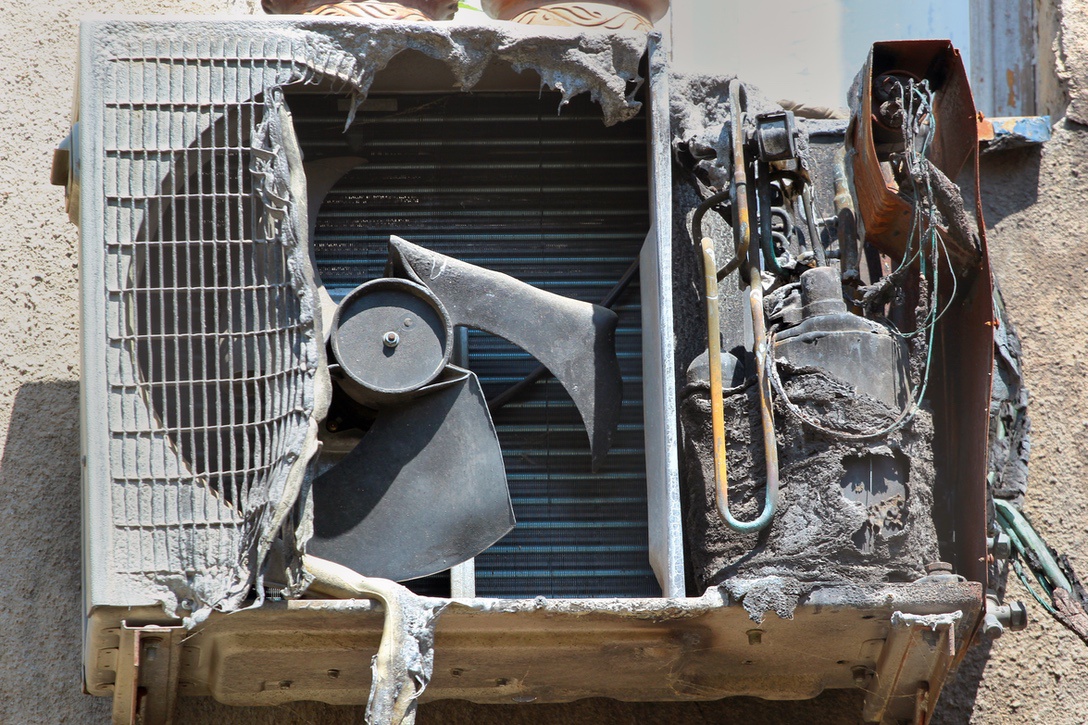
Risk #3: Fire Hazards
The electrical components in your air conditioner can do more than shock you—they can also start fires. For example, accidentally damaging electrical wiring while attempting a repair can create a short circuit, which in turn can create an electrical arc. An electrical arc produces sparks, which can ignite materials nearby.
Additionally, electrical energy stored in your air conditioner’s capacitors can be released accidentally if you handle them improperly. This can also start an electrical arc that leads to a fire in your home.
Risk #4: Damage to Components
Without proper training and experience, you may end up making repairs that do more harm than good. For example, if you attempt to repair a refrigerant leak by yourself, it can be quite easy to damage the evaporator coil—a crucial component for transfering heat from inside your home to the outside. If you do, your air conditioner won’t be able to cool your home at all.
Trying to repair your air conditioner’s fan is another example of a DIY fix that can cause extensive damage, since you may end up damaging the fan blades or breaking the sensitive motor that allows it to spin. If you do, you’ll probably need to replace the blower motor entirely—which is much more expensive.
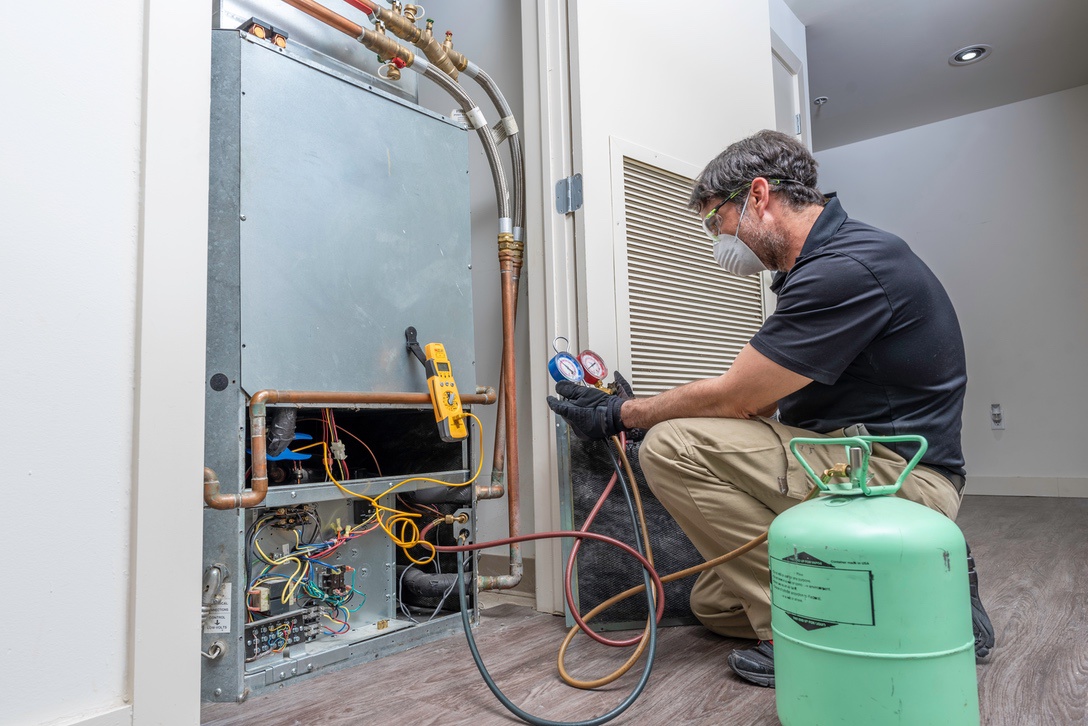
Risk #5: Voiding the Warranty
It’s also vital to understand that your air conditioner’s warranty only applies to repairs undertaken by qualified professionals. This means that any damage you cause to your AC unit while attempting DIY repairs will not be covered by the manufacturer—and they won’t cover future damage, either!
If you’re experiencing a problem with your air conditioner, it’s always better to have our home comfort specialists diagnose and address the problem. This will keep your warranty valid in case you need to use it in the future.
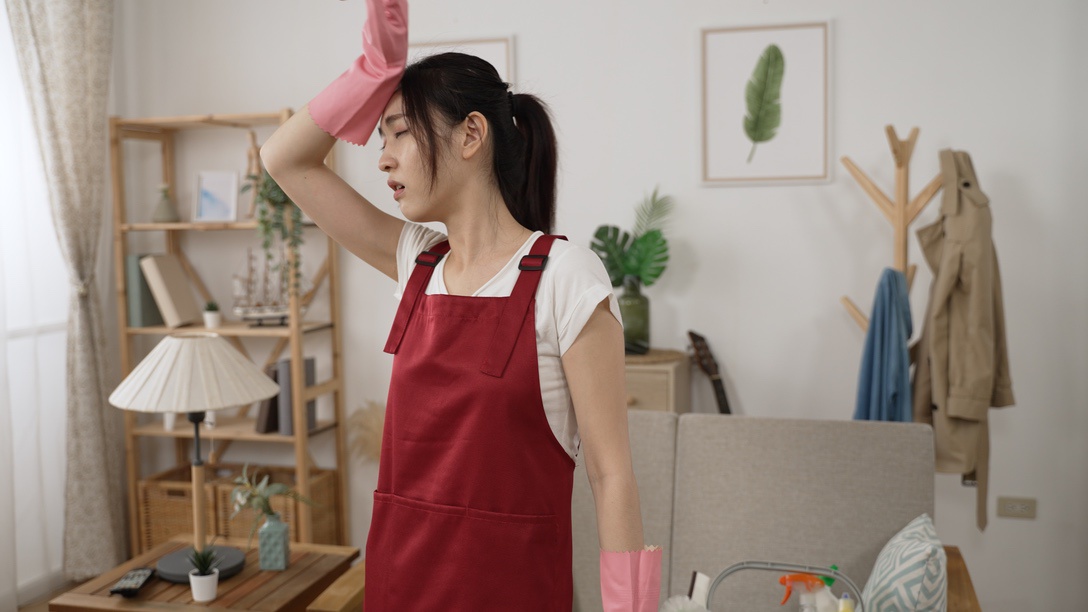
Risk #6: Incorrect Repairs
On top of all that, there’s no guarantee that DIY repairs will actually fix what’s wrong with your AC unit. This is because air conditioners are complex systems that require specialized training and tools to diagnose and repair. If you don’t have the right knowledge or equipment, you may only be treating the symptoms of the problem and not the root cause.
For example, if your air conditioner is not blowing cold air, you might think the problem is with the fan. But, in reality, it could be due to a refrigerant leak or a faulty compressor. Trying to fix the fan on your own won’t resolve the underlying issue and you’ll end up wasting your time and potentially causing further damage to your AC unit. To ensure that the problem is properly fixed, give us a call and let our professionals handle it.
Why Investing in HVAC Experts Is Worth It
As you can see, the risks associated with DIY air conditioner repair far outweigh any potential benefits. Tampering with your air conditioner can end up costing you much more than simply hiring a qualified expert, and can be dangerous besides.
When you contact Cencal Mechanical Heating & Air for air conditioner repairs, you can trust us to get the job done right. We take pride in doing high-quality work our customers can count on, so if any of our HVAC repairs fail in the first year, we’ll do them over again—absolutely free of charge. Call now to speak with an expert, or book your AC repair online.
